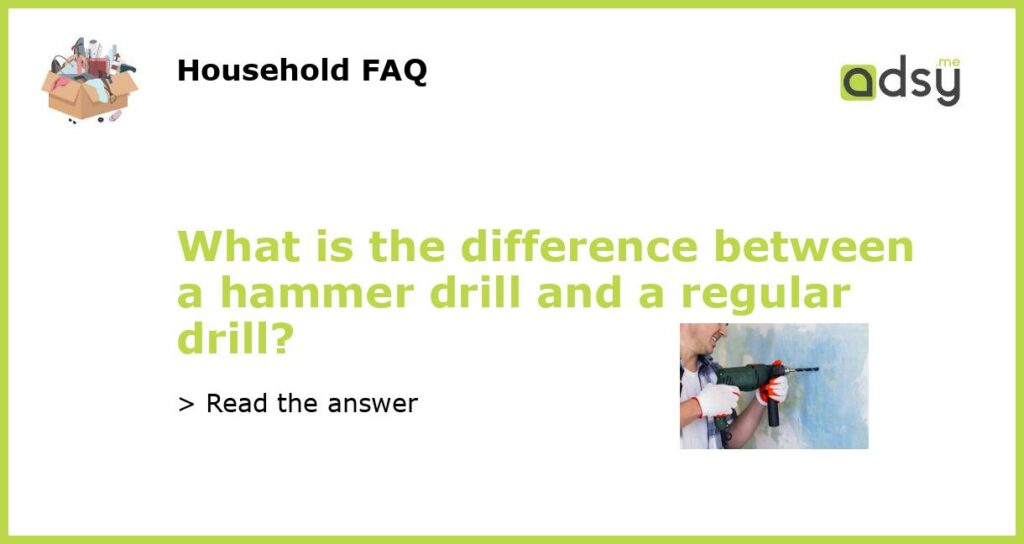Understanding the Differences: Hammer Drill vs Regular Drill
If you’re in need of drilling holes into hard surfaces such as concrete, brick, or stone, you’ll need a tool up to the task. There are two commonly used power drill options for this purpose: the hammer drill and the regular drill. So, what’s the difference and which one should you choose? Let’s take a closer look.
The Basics of Hammer Drills
First off, let’s start by understanding what a hammer drill actually is. A hammer drill is a power tool that combines rotary motion (like a regular drill) with hammering action. It uses a piston-like mechanism to deliver rapid and forceful hammer blows, which helps to break through tough surfaces. Hammer drills come in both corded and cordless options, and are generally more expensive than regular drills.
The Fundamentals of Regular Drills
Regular drills (also known as drill/drivers) are a staple in any tool kit. They are versatile power tools that are used for a wide range of drilling and driving applications. Regular drills operate by spinning the drilling bit rapidly in a circular motion, which helps it to cut through materials such as wood, plastic, or metal. Regular drills also come in corded and cordless options, and are generally more affordable compared to hammer drills.
Comparing the Pros and Cons
When deciding between a hammer drill and a regular drill, there are a few key factors to consider:
- Power: If you need to drill into hard surfaces, a hammer drill is a better option due to its added hammering force.
- Speed: Regular drills typically have higher RPMs (revolutions per minute), which can make them a better choice for lighter materials and faster drilling.
- Versatility: While hammer drills can handle tougher surfaces, regular drills are more versatile and can be used for a wider range of tasks such as driving screws.
- Cost: As mentioned earlier, regular drills are generally more affordable compared to hammer drills.
Which One Should You Choose?
Ultimately, the answer to this question depends on the specific task at hand. If you find yourself frequently drilling into concrete or other hard surfaces, a hammer drill is the way to go. However, if you need a more versatile tool that can handle a variety of tasks, a regular drill is likely the best choice. When in doubt, consider renting both options to see which one works best for your needs.






